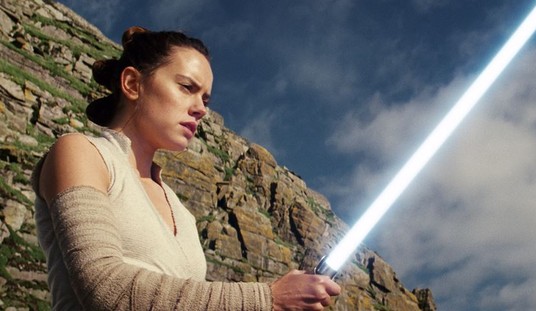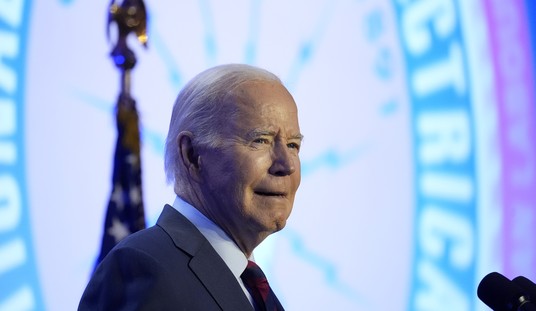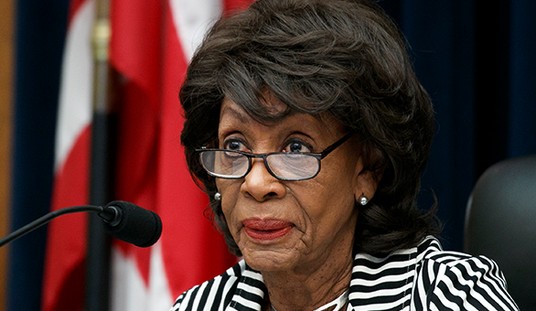Not so long ago you couldn’t open a newspaper or turn on the TV news without seeing pictures of “stranded” polar bears (who weren’t stranded), “collapsing” ice sheets (ice sheets have collapsed for as long as there have been ice sheets), or Manhattan under water to illustrate some new claim about how runaway global warming was going to lead to imminent catastrophe.
Alongside the propaganda masquerading as news, Hollywood and TV companies have been churning out fictional disinformation in the shape of films such as The Day After Tomorrow and Happy Feet (any self-respecting propaganda machine knows the importance of catching ‘em young), and various small-screen dramas and “drama-documentaries.”
But with no significant increase in global temperatures for the past ten years or so, and atmospheric monitoring failing to find any evidence of the much-vaunted “greenhouse signature,” what used to be a steady stream of apocalyptic stories emanating from the newsrooms has all but dried up, and the job of trying to persuade us that the threat from global warming is real is increasingly being left to the entertainment divisions of the mass media. The BBC has long been one of the worst offenders in terms of biased reporting on the issue, and now the Beeb has stepped up to the plate to address the propaganda deficit with its two-part drama Burn Up.
[Note: Burn Up is a joint BBC-Canadian production, which just aired in Great Britain. It will also air in Canada, and it’ll likely find its way on to US television at some point. There are no outright spoilers in what follows, but a couple of minor ones.]
The plot of Burn Up revolves around the newly appointed boss of Arrow Oil, Tom McConnell, who’s drawn into all manner of intrigue surrounding attempts to get the United States to sign a “Kyoto 2” treaty at a climate change summit in Canada. Tom begins to question his company’s commitment to fossil fuels when he falls under the spell of Holly (Neve Campbell), Arrow’s hot new appointee to the supposedly token position of head of renewables.
Battling Holly for Tom’s soul is oil lobbyist Mack, played by The West Wing‘s Bradley Whitford. Mack is essentially JR Ewing without the good points, and in case the viewer should be in any doubt as to the extent of his moral bankruptcy, in one of Burn Up’s many gratuitously America-bashing scenes Mack is shown watching a faith healer at work on cable TV, and exclaiming, with tears in his eyes, “Praise the Lord!” It’s not bad enough that he’s a shill for the oil industry — he’s a Bible-bashing shill for the oil industry.
Tom’s conversion from oilman to eco-warrior is helped along by an encounter with another pretty woman, an Inuit scientist and environmental campaigner called Mika. Mika serves Tom with a writ alleging that Arrow’s activities are destroying her people’s habitat, then immolates herself outside the ensuing court hearing (a feat which, ironically, she wouldn’t have been able to achieve without the help of a large can of gasoline — try committing ritual suicide with a solar panel and see how far you get).
Before going up in flames Mika hands Tom a DVD, which turns out to be her martyrdom video. (The parallel between the behaviour of environmental extremists and Islamic extremists is no doubt unintentional, but it’s food for thought.) Having watched the video, Tom vows that Mika will not have fried in vain.
Tom and Holly travel to Canada for Mika’s funeral (irony alert number two: they have to bury her under a pile of rocks because the ground is frozen). Having paid their respects, Holly and Tom promptly shack up together (literally — they do it in a shack).
Note to lefty environmentalists everywhere: it’s okay to cheat on your wife and destroy your family, just so long as you care sufficiently about the planet.
And so to Calgary, where the bullying, insensitive American delegation is riding roughshod over global opinion and doing everything it can to sabotage Kyoto 2, with Mack and his sinister cabal of businessmen pulling the strings. It’s no exaggeration to say that the fate of the world depends on Tom and Holly. Can they succeed?
You don’t want to know. Burn Up is lousy drama. Every character is a stereotype, particularly the Americans: Mack and his cronies wear stetsons in the bar while celebrating the anticipated demise of Kyoto 2. The plot is simplistic and far-fetched, while the dialogue sounds like something cooked up at a drama workshop for teenagers: I know this because my partner, who teaches drama workshops for teenagers, overheard a snippet (“You could help start a third energy age — the one that’ll save us. The solar one, the wind one, the one that won’t kill us.”) and remarked “it sounds like one of my kids’ plays.”
It’s likely to be more effective as propaganda when viewed by anyone who’s been “softened up” by the fear mongering of the past few years, and particularly by young people who would rather have their opinions on issues delivered to them via movies, and by pop stars and comedians, than take the time to learn the facts for themselves.
The premise of the alarmists’ arguments are almost universally accepted. Even the sinister figures who apparently control the US government admit in private that global warming is happening, but they welcome it as an easier way of crippling their enemies than fighting wars. And renewables (but not nuclear power) are portrayed as a viable replacement for carbon fuels, when in reality neither solar nor wind show signs of being able to meet more than a fraction of the world’s energy needs any time soon.
Burn Up gives lip service to the costs associated with moving away from fossil fuels, and Mack even gets a few good lines about the virtues of loyalty and patriotism, and the power of free-market capitalism to deliver people from poverty. But it also recycles every infantile misconception and conspiracy theory of the alarmists, and it ultimately comes down firmly on the side of those who think we have to dramatically reduce our consumption of fossil fuels right now, regardless of the consequences.
Tom gives voice to the alarmists’ ultimate fantasy when he tells Mack that “The crash is coming, and when it happens something better will come out of the mess.” He doesn’t speculate on what the something will be, but the allusions to some form of Year Zero, followed by uninterrupted progress towards Utopia, are clear. And better than what? Better, presumably, than a world in which America is the dominant superpower.
The team behind Burn Up don’t even try to hide the fact that they’re in the propaganda business. In the publicity material for the drama, writer Simon Beaufoy declares: “The idea of concealing the potentially indigestible politics of climate change in the “Trojan horse” of a thriller seemed a good way to engage an audience.”
Beaufoy adds that “a warming planet isn’t just a threat — it’s happening.” Which suggests that he came to the project with his eyes firmly closed. Scientists have yet to provide one shred of evidence to support the theory that the small amount of warming seen in the last century is outside the range of natural variation in the Earth’s temperature, or that any of the warming has been caused by human activity.
He also claims that “there isn’t a fact in the script that hasn’t been double checked.” Seeing as the script isn’t big on facts, and relies mostly on half-truths, exaggeration and selective omission (we’re told, for example, that the US produces 25% of the world’s carbon emissions, but not that the US is responsible for a similar percentage of world GDP), the fact-checking process can’t have taken very long.
But here’s one for starters: as part of the horse-trading at the fictional Kyoto 2 talks in Calgary, Europe offers to help build 20 “clean coal” power stations in China. The delegates are surprised when the Chinese negotiator replies that China needs not 20 power stations, but 87. The “facts”? China is building, or planning to build, more than 500 coal-fired power stations over the next few years.
And even if we accept that the filmmakers have endeavored to get their facts right, because Burn Up is being sold to us as a “fact-based drama,” the lines between fact and fiction are constantly blurred, never more spectacularly then when Tom discovers that Saudi Arabia is about to run out of oil, which patently isn’t the case in reality.
It’s a sign of how weak the alarmist case is looking these days that even the writers of a work of fiction are unable to make a convincing argument for abandoning the use of fossil fuels, and have to throw in the conceit that the oil is about to run out in order to try and carry the audience with them.
And what about the scene where a scientist tells a British government official that we only have five to ten years before global warming becomes unstoppable? Fact (it would be news to an awful lot of people), or dramatic license?
While Burn Up might fool some people, the alarmists will have to do better than this if they’re hoping to reignite the flagging interest in their cause among a public that sees a growing disconnect between what they’ve been told, and what’s actually happening.
Meanwhile, those who have long been skeptical about the global warming scare will find it entirely appropriate that the world of fiction is one of the few realms, outside of the IPCC and the Gore household, in which the subject is still being talked about seriously. If we keep seeing more dramas like Burn Up, and less factual reporting about global warming, then we can safely assume that the world’s in no danger of burning up any time soon.








Join the conversation as a VIP Member